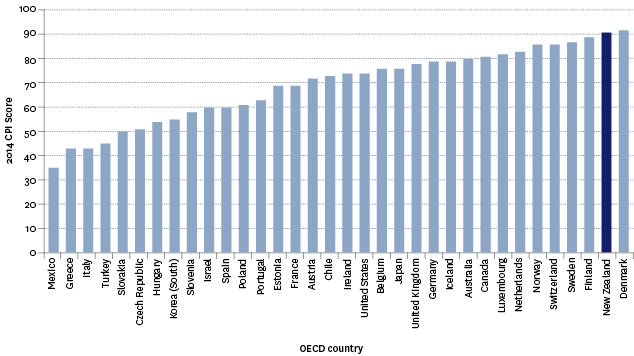Civil and political rights
Perceived corruption
Definition
The perceived level of corruption – defined as “the abuse of public office for private gain” – among New Zealand politicians and public officials.
RelevanceTop
Corruption undermines democracy and the rule of law, and threatens domestic and international security. Corruption also has adverse social and economic consequences for a country. The Corruption Perceptions Index (CPI) is a good proxy indicator of the values and norms that underpin public institutions, scoring countries on a scale of 0 (highly corrupt) to 100 (highly clean).
Current level and trendsTop
International comparisonTop
In the 2014 CPI, New Zealand ranked the second least corrupt nation out of 34 OECD countries. Denmark was ranked least corrupt with a score of 92, and Finland the third least corrupt with a score of 89.
New Zealand scored higher in the CPI than the other OECD countries including: Canada (9th least corrupt, with a score of 81), Australia (10th, 80), the United Kingdom (13th, 78) and the United States (16th equal, 74), and was well above the OECD median of 74.
Figure CP6.1 – Corruption Perceptions Index scores (0=highly corrupt,
100=highly clean), OECD countries, 2014

Source: Transparency International
Data for this section can be found at: www.socialreport.msd.govt.nz/documents/2016/cp6.xlsx

